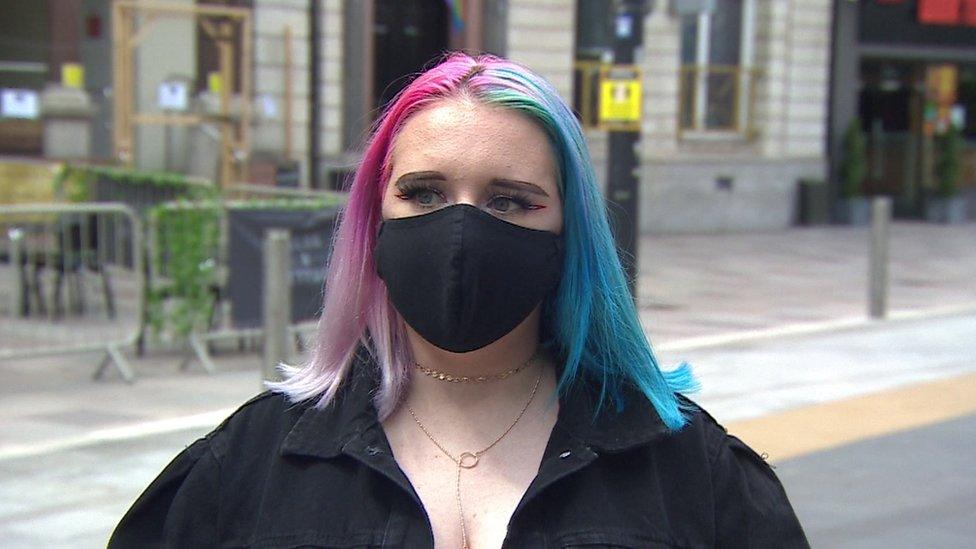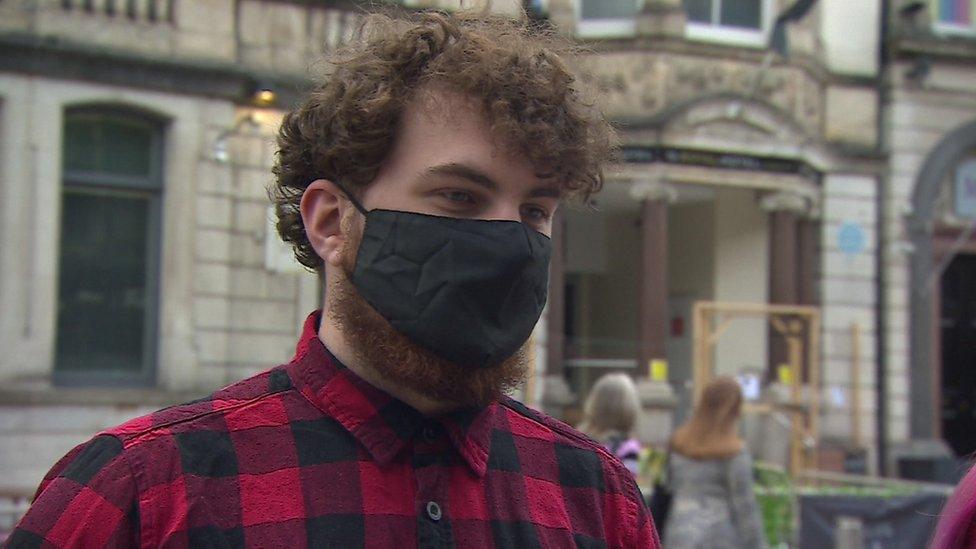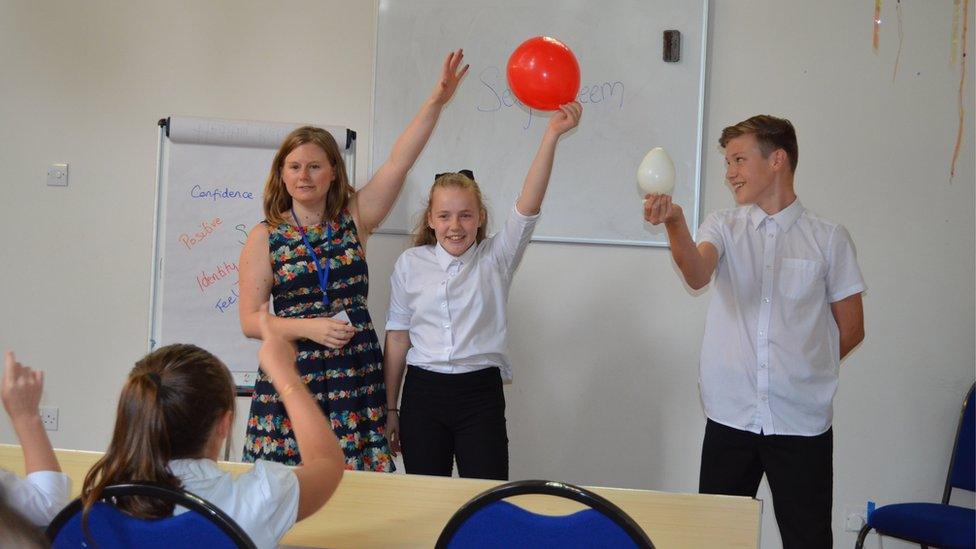Covid: Young people 'worried about jobs' after pandemic
- Published
"You don't know how you're going to afford things"
Young people have been disproportionately affected by the pandemic and are likely to feel the effects for some time, a report says.
Those aged between 16 and 24 were more likely to be employed in sectors that had been shut down, the Public Health Wales report said.
They also felt uncertain about the future and were worried about their job prospects.
Dr Ciarán Humphreys said young people were hit by a "multitude of factors".
The consultant in public health at Public Health Wales added that these will "potentially have long lasting effects on their employment prospects".

Key findings of young people
Young workers (aged 16-24) were much more likely to be employed in "shutdown sectors" - 36% compared to 11% of those aged 35-64
They were concerned about lockdown issues - such disruption to education or training - on top of existing issues
They tend to work in sectors with "less protection and rights due to the 'flexible' nature of their jobs", such as with zero hour contracts - this was also the case for those living in deprived areas of Wales
They felt uncertain about the future, especially when government schemes come to an end, effects on job prospects and the potential for higher tax in the future to pay for the financial support schemes
They were not aware of what support is available

'The pandemic flipped it'

Amy Delaney lost the job supporting her during her studies at the beginning of the pandemic
Amy Delaney, 23, was made redundant from her part-time job that was supporting her through university at the beginning of the first lockdown.
"Everything changed so fast so it was a bit crazy at the time," she said.
"It was really stressful. You're on a path, you think you know where you're going and the pandemic just flipped it."
She said it made her mental health "so bad for so long" and she had to be supported by her partner's family.
"I don't have the best mental health anyway and I had never lost a job so this hitting me and not knowing where to go was a crazy time.
"The long term you don't know where you are going to go, you don't know what's going to happen next week or how you're going to afford things - It affected me badly."
'We're one of the lucky ones'

Joe Wright said his friends are all in different positions coming out the other side of lockdown
Joe Wright, 21, is Amy's partner and helped support her during her redundancy, which he said was "difficult at the time".
"At the time I was only a customer service representative so I wasn't making a lot of money so I was splitting what I had support myself and Amy," he said.
"We got through and we're one of the lucky ones to have come through all of this."
'It looks very uncertain'
Quinn Coxon is studying biology remotely and said he will go on to do a Masters and potentially a PHD as "I don't want to enter the job market anytime soon - it looks very uncertain".
Emile Moorhouse, who is working two part-time jobs, said a lot of people he knows were feeling anxious about finding work.
"A lot of people feel anxious about being rejected or don't feel confident in their skill set and they feel like they need to do further education or they don't stand a chance."
He said because of the shift to working from home, "it is probably a lot harder to be in the job market if you haven't been in it before because it is quite uncertain".
- Published3 May 2021

- Published25 April 2021

- Published23 April 2021
